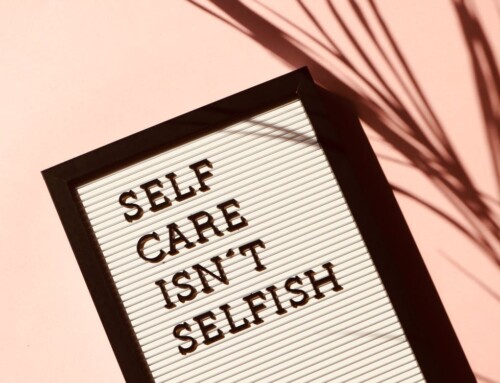Counselor on Helping Parents Understand Bullying and Its Consequences
On April 16, 2011 in Minnesota, a slumber party made national news when two eighth graders, Haylee Fentress and Paige Morrison, were found hanging in Fentress’s house. It was a suicide pact fueled by cyberbullying, humiliation, and the taunting of their peers. Unfortunately, millions of teens in America face bullying in some form, and too many result to suicide before receiving help.
Parents, teachers, and adults must be aware of the implications of bullying and need to learn the stealth signs of bullying that often fly under the radar. Read below to learn the definitions and distinctions between cyberbullying, bullying, and indirect aggression and the signs to look for. Take time to research interventions, resources, and seek counseling for your child or teen if you suspect they are being bullied.
Definitions and Types of Bullying
According to stopcyberbullying.org, “cyberbullying” is when a child, preteen, or teen is tormented, threatened, harassed, humiliated, embarrassed or otherwise targeted by another child, preteen or teen using the Internet, interactive and digital technologies or mobile phones. To be considered cyberbullying, it must include a minor on both sides, or at least have been instigated by a minor against another minor.
According to Dan Olweus, creator of the Olweus Bullying Prevention Program, “A person is bullied when he or she is exposed, repeatedly and over time, to negative actions on the part of one or more other persons, and he or she has difficulty defending himself or herself.”
Olweus’s definition includes three important components:
- Bullying is aggressive behavior that involves unwanted, negative actions.
- Bullying involves a pattern of behavior repeated over time.
- Bullying involves an imbalance of power or strength.
There are three different types of bullying:
- Physical: Kicking, hitting, pushing, pulling hair, and spitting.
- Verbal: Teasing, name-calling, taunting, and making malicious threats.
- Psychological: intimidation, indirect aggression, exclusion, and spreading rumors.
What is Indirect Aggression?
Many of us have heard the idea that “girls are meaner than boys”, but some studies have shown that girls are simply more aggressive in an indirect way. Psychiatrists call this “indirect aggression”. It is another form of bullying that often goes unnoticed by parents, teachers, and other adults. Indirect aggression is also called “social” aggression. Adolescent girls, in particular, are known to use manipulative social tactics to assert indirect aggression to gain power, position and emotional satisfaction amongst their peers.
Indirect aggression includes the following behavior:
- Rejecting others from the group,
- Spreading spiteful rumors about others
- Breaking trust and confidences
- Using code names to talk about others
- Leading others to dislike a person
- Ignoring to exclude from the group
- Prank calls
- Non-verbal aggression
Consequences of Bullying and Indirect Aggression
The consequences of bullying and indirect aggression range widely. The target of such behaviors may feel these consequences physically, emotionally, or psychologically, and sometimes the signs may be so subtle that parents, teachers, and other adults don’t notice them. This is often the scariest part for parents as they yearn to help their child in need.
Bullying and indirect aggression may cause:
- Anxiety
- Depression
- Suicidal ideation
- Poor self-concept
- Low self-esteem
- A drop in academic performance or attendance
- Health issues
- Changes in appetite
- Changes in behavior
- Drug and alcohol consumption
How can parents help kids deal with social relationships?
Parents can help children and teens by discussing ways in which to handle conflict and set boundaries with peers. Teaching children from a young age how to vocalize their emotions, likes, and dislikes is helpful if they are ever the target of bullying. Remind your child or teen that almost all people have trouble with friendships at some time and that it is okay to be mad. Talk to your child about how to express anger calmly and in healthy ways, and about talking to teachers or guidance counselors if they experience bullying. Remind your child to always think before they act, and ask for an apology if necessary. With regard to social aggression, if your child experiences things like not being invited to a party or is being ignored by a friend, help them create a list of what a “true” friend means to them and help them plan other fun activities to do. Sometimes, children and teens will need to learn how to move on from individuals who do not treat them well.
Your child’s safety should also be at the forefront if they are being bullied. If your child or teen is being physically hurt, or begins to experience undue psychological and emotional harm due to bullying, you may have to remove them from the situation and speak to teachers, school administration, or other adults.
A Boca Raton Bullying and Social Aggression Counselor Can Help You
If your child or teen is experiencing any of the consequences of bullying, or you suspect they are being bullied, contact Total Life Counseling Center’s Boca Raton office today at (561) 560-7110. Our trusted and experienced counselor can provide your child with the help they need to handle bullying and social aggression.
Filed in: Boca Raton, Bullying
Share This Story, Choose Your Platform!
Total Life Counseling Center consists of Licensed Counselors, masters level therapists, Español counselors, Licensed Mental Health Counselors, business coaches, and image enhancement coaches who provide counseling for emotional, mental, physical and spiritual care including marriage, individual, family, substance abuse and more. TLC’s family, trauma and marriage experts have been interviewed on National and Local TV/Radio over 200 times for their expert advice on Fox News, OWN, WETV, ABC’s Medical Minute and more. Our skilled counselors are relational, approachable and specialists providing therapy services in the Central Florida area including: Orlando, Winter Park, MetroWest, Windermere, Dr. Phillips, East Orlando, Lake Mary, and Clermont, Boca Raton Florida, and Dallas, TX.





